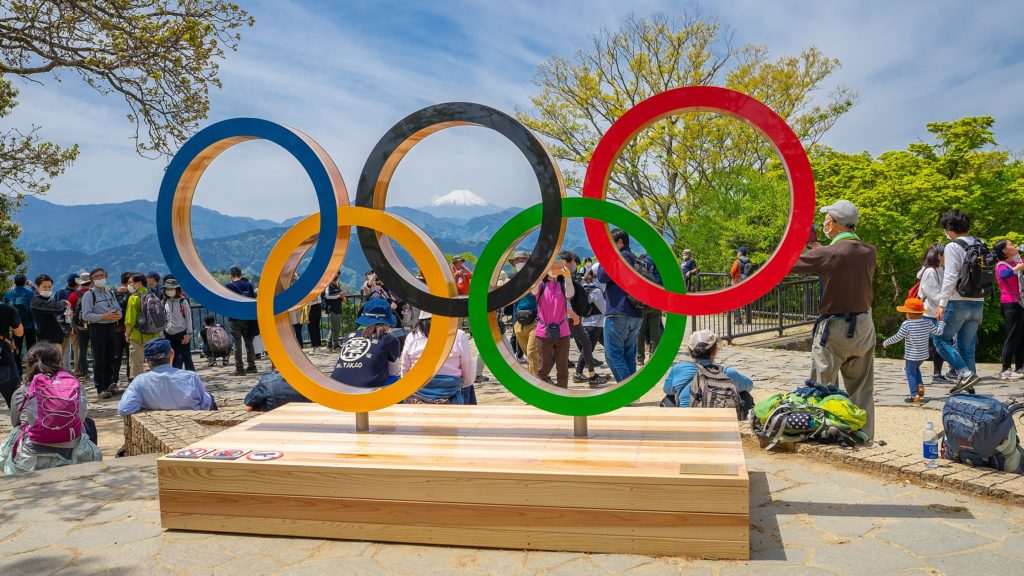
By Antonio Tajuelo from Tokio, Japón – Anillos Olímpicos en la Cima del Monte Takao
The Tokyo Olympics are here! So are you feeling that Olympic fever? Or are you feeling a bit uneasy about the whole idea of having the pandemic-delayed Games in a city that’s under a state of emergency because of the resurgent pandemic? You might look to the Interactivity Foundation’s 2018 discussion guide on The Future of Sports and Society to help you sort out what you’re thinking and feeling. The guide, which unfolds over eight different “stories” linked together on Medium, presents seven different policy possibilities as responses to different societal concerns about sports. A group of citizens generated these ideas in a sustained dialogue project facilitated by the Interactivity Foundation.
Why do we care so much about sports–enough so that we’re willing to hold an international competition during a global pandemic? One obvious answer is that it’s all about the money. And one of the policy possibilities is that we should just focus on running the business of sports as a business. But another response is that we care about sports because they are important for health–and not just for physical health but for the health of our communities. If health, for individuals and for communities, is the primary purpose for sports, do our policies match this goal? Are we putting our money where our mouth is?
The Olympics always bring to mind the medal race. So what if we focus on “going for the gold” by targeting the development of elite athletes? After all, the performance of elite athletes can boost civic and national pride, serve as a kind of public diplomacy, and inspire new athletes to take on a sport. But what’s the best way to do this? Is the US doing a good job, especially when you consider the economic barriers we create for sports participation? If you adjust for population size, the US actually lags behind the performance of smaller nations, like Australia. Should we learn from how their successes? And if success in sports is of national interest, how can we hope to maximize our potential if we don’t have a coordinated or centralized approach to national sports policy? The US, unlike most developed nations, does not have a federal “department” or “ministry” of sports.
Finally, it’s hard to think of the Olympics and not think of the doping scandals that often accompany the games. Already we’ve seen US sprinter Sha’Carri Richardson, one of the US’s brightest prospects, barred from the games because of a positive test for cannabis, a performance-diminishing drug. The Drug Wars in sports have been a losing effort, where drug enforcement constantly trails behind innovations in doping–and where the biggest burdens are borne by those who are trying to comply. So, what if we stopped policing doping in sports and embraced a more inclusive approach to participation? And while we’re at it, what if we stop the longstanding practice of policing the women’s bodies? In the past decades, we have become more aware of the broad array of differences in sex development and the broad spectrum of gender identities. How can our policies for sports keep pace?
You’ll find something on these different possibliities–and more–as part of the discussion guide. The participants were not endorsing any of these as “the” answer to the questions of sports and society. They were simply offering them as different visions of possible answers–answers that could prompt further exploration and discussion by their fellow citizens. Why not play with their ideas?



